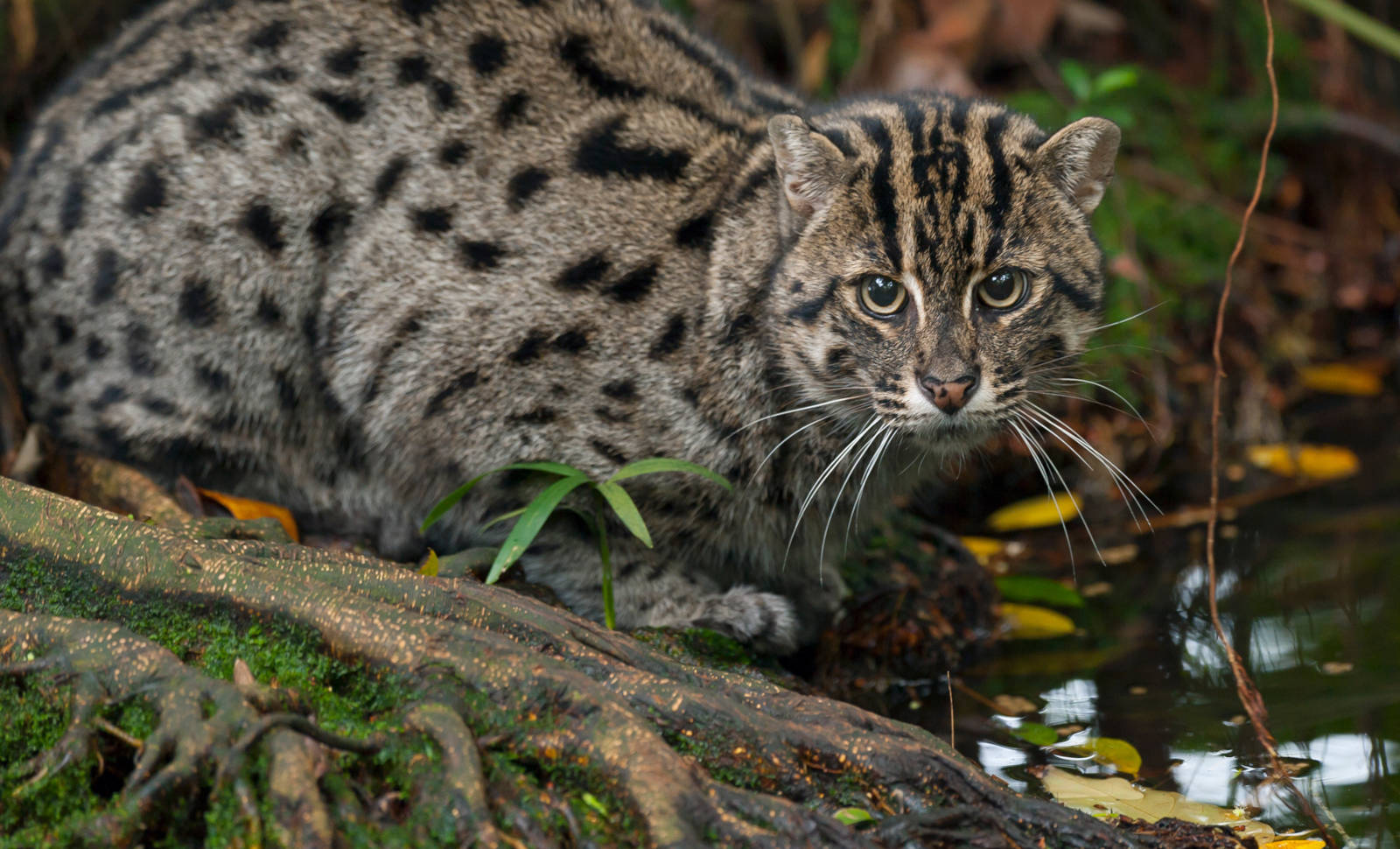Sundarbans National Park
How to Get there?
![]() Approximately a 03 hour
drive from airports at Kolkata or Calcutta International Airport well connected by both.
domestic, as well as international flights.
Approximately a 03 hour
drive from airports at Kolkata or Calcutta International Airport well connected by both.
domestic, as well as international flights.
Type of Safari at the Park?
![]() Here, the only way
to explore the mangroves is through a privately hired boat or to join a group on a larger
boat. The drawback of the larger boats are that they cannot get through all the creeks and
narrow channels, hence a smaller boat safari is preferred.
Here, the only way
to explore the mangroves is through a privately hired boat or to join a group on a larger
boat. The drawback of the larger boats are that they cannot get through all the creeks and
narrow channels, hence a smaller boat safari is preferred.
History & Overview
The Sundarbans is the largest delta in the world. Here, the 2 mightiest rivers of India - Brahmaputra & Ganges - along with the river Meghna, drain their waters into the Bay of Bengal thus creating the world’s largest mangrove forest and a biodiversity hotspot. The word “Sundarbans” comes from the mangrove species Heritiera minor locally known as Sundari. This habitat is made up of 56 islands of mangrove forest which harbours countless species whose behaviour is rooted in the tidal patterns of the area.
Not only a home for wildlife, the Sundarbans delta also provides for almost 4 million people, many of whom visit the forest daily for firewood and honey collection. Accounts of conflict with man-eating Royal Bengal Tigers are chilling and it gives the otherwise gentleman-like tiger, a notorious reputation.
It is a UNESCO World Heritage Site, a Tiger Reserve and an Important Bird Area of the world and over 300 bird species, 40 mammal species, 35 Reptiles Species & 08 amphibian species have been recorded here in these 10000 sq.km of forest. To see a Tiger here is like no other in India, the swampy, dense and dark environs of the Sundarbans gives an aura of a mysterious realm and an experience truly unique.
Flora and Fauna
| Wildlife | Birds |
| Royal Bengal Tiger | Masked Finfoot |
| Irrawady Dolphin | Mangrove Whistler |
| Indo-gangetic Dolphin | Mangrove Pitta |
| Fishing Cat | Collared Kingfisher |
| Smooth Coated Otter | Brown-Winged KingfishSer |
| Small Clawed Otter | Spoonbill Sandpiper |
| Saltwater or Estuarine Crocodile | Black Capped Kingfisher |
| Water Monitor Lizard | Ruddy Kingfisher |
| King Cobra | Stork-billed Kingfisher |
| Rock Python | Pied Kingfisher |
Geography and Climate
| Area | 1,330 km² |
| Co-ordinates | 21.8359° N, 88.8842° E |
| Weekly Off | Sunday |
| Functional Days | November to July |
| Rainfall | 1800-2900mm |
| Forest Type | Mangrove Forest |
Enquire Tour
Tours
National Parks
Explore

Post - Tala, Bandhavgarh National Park, District - Umaria, Madhya Pradesh, Pin code - 484664
+91 9630507774, +91 9340711175Email : info@tigerjourney.in
© 2020 All Rights Reserved






